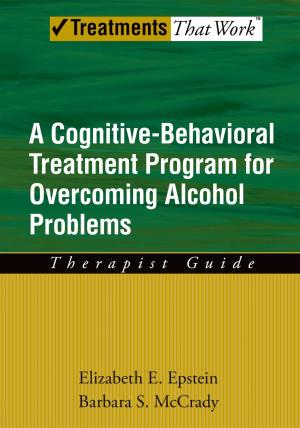The Oxford Handbook of Reproductive Ethics
Nonfiction, Health & Well Being, Medical, Reference, Ethics, Religion & Spirituality, Philosophy, Ethics & Moral Philosophy| Author: | ISBN: | 9780190657796 | |
| Publisher: | Oxford University Press | Publication: | December 28, 2016 |
| Imprint: | Oxford University Press | Language: | English |
| Author: | |
| ISBN: | 9780190657796 |
| Publisher: | Oxford University Press |
| Publication: | December 28, 2016 |
| Imprint: | Oxford University Press |
| Language: | English |
Intimate and medicalized, natural and technological, reproduction poses some of the most challenging ethical dilemmas of our time. Reproduction presses the boundaries of humanity and ethical respect, the permissible limits of technology, conscientious objection by health care professionals, and social justice. This volume brings together scholars from multiple perspectives to address both traditional and novel questions about the rights and responsibilities of human reproducers, their caregivers, and the societies in which they live. Among issues treated in the volume are what it is to be a parent, the responsibilities of parents, and the role of society in facilitating or discouraging parenting. May gamete donors be anonymous? Is surrogacy in which a woman gestates a child for others ethically permissible when efforts are made to prevent coercion or exploitation? Should it be mandatory to screen newborns for potentially serious conditions, or permissible to sequence their genomes? Are both parties to a reproductive act equally responsible to support the child, even if one deceived the other? Are there ethical asymmetries between male and female parents, and is the lack of available contraceptives for men unjust? Should the costs of infertility treatment be socially shared, as they are for other forms of health care? Do parents have a duty to try to conceive children under the best circumstances they can-or to avoid conception if the child will suffer? What is the status of the fetus and what ethical limits constrain the use of fetal tissue? Reproduction is a rapidly changing medical field, with novel developments such as mitochondrial transfer or uterine transplantation occurring regularly. And there are emerging natural challenges, too, with Zika virus just the latest. The volume gives readers tools not only to address the problems we now know, but ones that may emerge in the future as well.
Intimate and medicalized, natural and technological, reproduction poses some of the most challenging ethical dilemmas of our time. Reproduction presses the boundaries of humanity and ethical respect, the permissible limits of technology, conscientious objection by health care professionals, and social justice. This volume brings together scholars from multiple perspectives to address both traditional and novel questions about the rights and responsibilities of human reproducers, their caregivers, and the societies in which they live. Among issues treated in the volume are what it is to be a parent, the responsibilities of parents, and the role of society in facilitating or discouraging parenting. May gamete donors be anonymous? Is surrogacy in which a woman gestates a child for others ethically permissible when efforts are made to prevent coercion or exploitation? Should it be mandatory to screen newborns for potentially serious conditions, or permissible to sequence their genomes? Are both parties to a reproductive act equally responsible to support the child, even if one deceived the other? Are there ethical asymmetries between male and female parents, and is the lack of available contraceptives for men unjust? Should the costs of infertility treatment be socially shared, as they are for other forms of health care? Do parents have a duty to try to conceive children under the best circumstances they can-or to avoid conception if the child will suffer? What is the status of the fetus and what ethical limits constrain the use of fetal tissue? Reproduction is a rapidly changing medical field, with novel developments such as mitochondrial transfer or uterine transplantation occurring regularly. And there are emerging natural challenges, too, with Zika virus just the latest. The volume gives readers tools not only to address the problems we now know, but ones that may emerge in the future as well.















